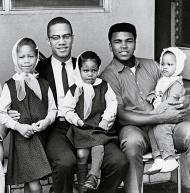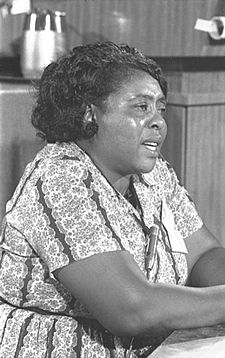
This whole post including the title is basically swiped from Feministe. Except the lolcats which I is inkluded for gigguls. Ahem.
In this “gotcha!” post, Holly lists sixteen (er, nineteen since I swiped another three from the comments section) behaviours that white people use to deny racism or white privilege and avoid responding to the challenge of recognising and being unable to escape from our white supremacist patriarchy.
In a fit of Liberal White Guilt I’ve starred the ones that I personally do or have done to some degree – or feel and then have to physically restrain myself from doing – although I like to think that my reactions and actions are less whiny and obvious, more subtle – read, more insidious, more deniable. Yes, as you will see, I am and have been very much a white person in denial. Hum. I am resolving to check this list whenever I feel upset, attacked, threatened, put in the wrong or otherwise defensive when challenged about racism or privilege.
(HT: NOLA Radfem.)
The Bootstrap Myth
“Racism is a thing of the past… this is a free country, and anyone who works hard can make it in America.”
The Backtrack *
“Hey, wait a second, that’s not what I meant… I mean… you took my words out of context, don’t make it try to sound like I’m racist!”
The Remove the Right To Be Angry *
“You’re too sensitive… if you weren’t so aggressive, vocal, hostile, angry, or upset, people would listen to you and you wouldn’t get in trouble!”
The Utopian Eye-Gouger *
“I’m colorblind, personally… why can’t we all just ignore race, it’s not like it’s even real… it’s not like I tangibly benefit from being white every day or anything! Can’t we all just get along?”
Turning the Tables
“You’re being just as racist against white people, you realize. You’re being racist against me right now, you reverse-racist hypocrites!”
The Good White Person * (not like those obvious racists!)
“Whoa, that guy over there is SUCH a racist, unlike me… I know exactly the right things to say and I’m never racist. By which I mean overtly offensive about it. Hold on, I think I’m going to go spit on that guy. I hate him.”
The Unblemished Family History *
“Hey, my family never owned slaves, so it’s not like I, as an individual, get any benefit from racism!”
The Bending Over Backwards * (makes you look flexible, but accomplishes little else)
“You people of color are so right. I agree with everything you say. Because you’re right, of course… not just because I’m guilty and white and wrong!”
The Personal Justification
“But a black person, Mexican, mean old Asian lady, or Native American once cut in front of me in line, said something stupid, mugged me, or took my hubcaps! So as far as I’m concerned, they proved all of my prejudices!”
The Loophole of Escape *
“I can’t possibly be a bigot or a racist… I’m part of the oppressed due to the fact that I’m a woman!” (or gay, poor, young, trans, etc.)
The Culture Appropriator *
“Damn, bro! You know I’m down with the homies, I ain’t no wack racist cracker, shiznit.”
The Lean On You When I’m Not Strong *
“Teach me, help me. I’m just a white person, so I need your wisdom as a person of color to show me how not to be racist. Wait, is what I said earlier racist? How about this shirt I’m wearing? Can you come with me to this party, so they know I’m not a racist?”
The Pause for Applause *
“Unlike all those other white people out there, I’m an anti-racist.” (…) “I do anti-racist work and I try to educate other people about anti-racism.” (…) “Wait, did you hear me?”
The Smoke and Mirrors *
“I totally agree. Racism is one system of oppression among many interlocking ones, that specifically awards more privilege and power to all white people, whether they like it or not, and serves to keep the existing power structure in place. Oh… what? You want me to volunteer in a community organization, contribute money, do security for your protest march? Uh… yeah maybe next time, I’ve got to wash my hair tonight. And walk my dog, see the latest episode of Lost, manage my stock portfolio…”
The Penitent Paralysis * (will not truly absolve you)
“Oh my god… that is so awful. I’m so sorry. Sorry. I can’t imagine what it must be like… I’m sorry. That’s so awful. I feel so bad for you. Sorry.”
Whipping Out Your Best Friends * (or children, adds Maia, ruefully)
“Hey, I’m not a racist, OK? Some of my best friends are black. See?”
Best Friend: “Yeah, I’ve known him since we were kids, and he’s never said anything racist to me!”
…and one bonus one for all your folks of color out there.
It Doesn’t Matter What Comes Out of My Mouth, Just Look at My Skin
“What? I can’t possibly be racist. I AM a person of color. How can I be racist against myself, huh? No, I haven’t heard of internalized racism, and I still think affirmative action is reverse racism!”
The Tiger Lily
“I can’t be racist. My mom says I’m 1/16th Cherokee. So I’m a minority, too, and I’m exempt. What? You say I’m blond and blue-eyed, grew up in the suburbs, have no connection to Native culture, and know of no actual Cherokee relatives? Well, one of my Grandmas was adopted. She might have been Cherokee. Or half-Cherokee. Nobody knows, right? Anyway, I’m exempt.”
The Lost in Translation *
“I went to Japan/China/Mexico/Uganda/Malawi/Bangladesh/the neighborhood a couple miles away with the good barbecue joints one time on a tourist jaunt/mission trip/cruise/lunch break, and I was the only white person there. So I get what it’s like to be a minority, you know? I can’t be racist. And man, is it ever scary to be surrounded by black(/etc.) people.”
Throwing Up Your Hands *
“What do you mean I’m part of a racist system no matter how I try to distance myself from it or prove that I think differently?! That’s ridiculous… I guess I might as well give up and join the Aryan Nation!”

Filed under: by an ally, by Maia, colourblindness, white supremacy | 11 Comments »







